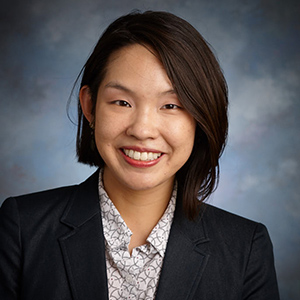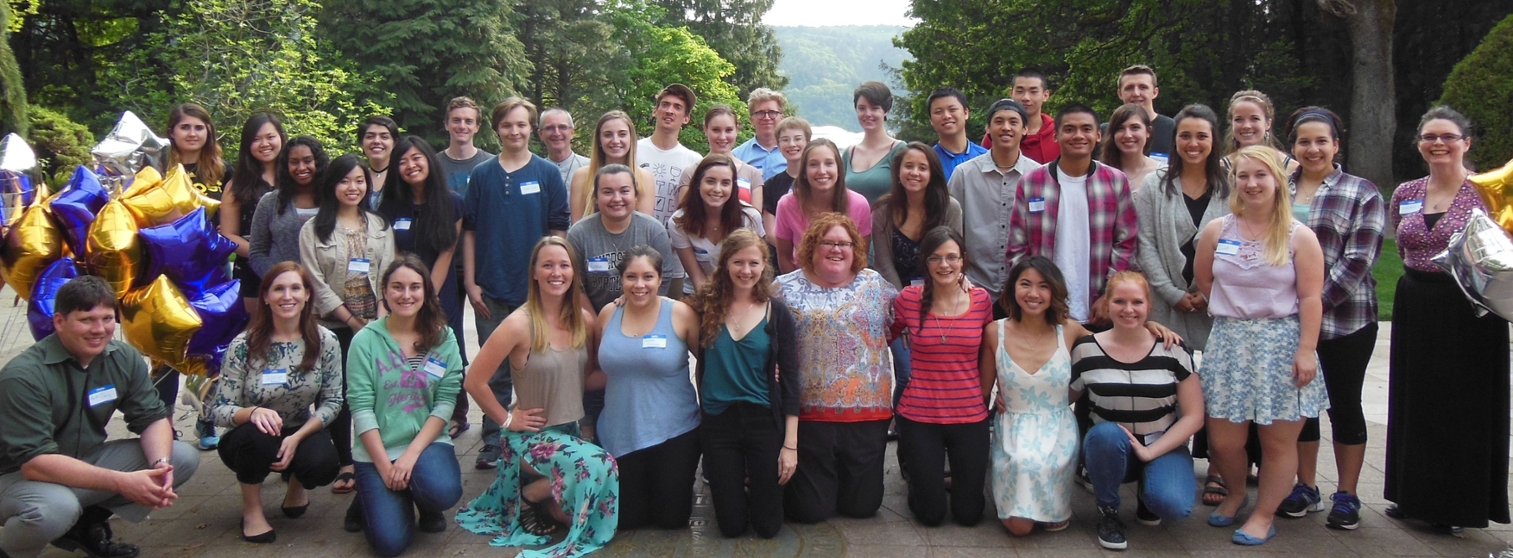Elizabeth Lee
 Current Position: Director of Institutional Research
Current Position: Director of Institutional Research
Alma Mater: Drew University (BA); Penn State University (PhD)
Major/Undergraduate field of study: Neuroscience
Graduate field of study: Social Psychology
What was it like being among the first in your family to go to college?
My family immigrated to the US in the 70’s in order to pursue the American dream. Part of “living the dream” meant that I would go to college. However, my parents were limited in their ability to help me navigate the process to access this opportunity. We didn’t know how to evaluate whether a college would be a “good fit”. We didn’t know how I was going to afford college. We didn’t know what schools in my region were “good” schools other than Ivy league schools. So I applied to about 15 schools in hopes of getting a good scholarship. I ended up enrolling at Drew because it was a small campus with a close knit community. Having excelled in high school, I wanted to go somewhere I could get to know my professors. Also when my mom called the Admissions Office to appeal for more financial aid, they were very responsive. So I ended up going to a college I had never heard of even though I lived less than an hour away from Drew my entire childhood!
Are there any unique challenges you faced as a First Generation student?
I juggled a lot of work study jobs in order to make ends meet. Any given semester, I was cobbling together tutoring in Biology, then washing glassware in the Chemistry lab, then making calls to solicit alumni donations, then filing paperwork for Financial Aid, then assisting the teacher for the photography class, and then working evenings at the front desk for Health Services. This was also while playing on the varsity tennis team. I was trying so hard to make my mom proud and not give her any reason to worry about me. I took on a lot of pressure to avoid failure and didn’t ask for help until pretty late into my college career! This was during a time when our broader culture lacked vocal affirmations that being first in your family to go to college was something to regard as an accomplishment. I didn’t feel like many of peers would be able to relate to my background, so I became quickly overwhelmed and felt like an imposter.
Do you have any advice for FGEN students at UP that are facing challenges?
It’s important to consult your advisor to come up with a plan, however it’s OK if those plans change. Sure college is a time to earn a degree to set you on a successful career trajectory, and yet it’s also a time to evolve and nurture emerging interests. This was a time when I got to explore what I wanted for my future, separate from my family’s expectations. My advisor challenged me to try things that interested me outside of my major. So I ended up reading a ton of Puerto Rican and Cuban literature and got to do a study abroad gig on those two islands! I took poetry and art classes that were absolutely time well spent. These were enriching opportunities I would’ve missed out on had it not been for my advisor’s patient encouragement. So I’d say be intentional about connecting with at least one staff or faculty member. They will be your point person who can refer you to diverse opportunities and resources.
Did a mentor play a role in your FGEN experience? How so?
Absolutely, mentors were key. Mentorship doesn’t have to be a formal thing, however it doesn’t usually happen by accident either. For me, having mentors meant regularly reaching out and checking in with the professors who seemed most invested in my success. I was usually too shy to talk in class, so I often started hallway chats with my professors, which eventually led to individual meetings. These meetings were key in helping me gain concrete, practical knowledge like how to navigate applying for graduate school and earning my doctorate degree. These meetings were also key in gaining perspective and support in order to juggle all my responsibilities. I was relieved I chose a small school that emphasized faculty mentorship. Thank you Drs. Jill Cermele, Jessica Lakin, and Robin Timmons! I look back fondly and with much gratitude for how much time they spent guiding me through life.
How do you feel your experience prepared you, both professionally and personally?
My experience as a first-generation student is intertwined with also learning to be proud of my identity as an Asian American woman born of immigrants. I was a fish out of water surrounded by peers with much more privileged backgrounds (it was pretty obvious just by walking across the parking lot and seeing all the expensive cars with S permits). Yet successfully navigating college and then graduate school helped me realize I was a worthy person with a lot to offer the world! Being first-generation solidified my coping skills, resilience, and independence. Now as I progress in my career (and life) and face new, sometimes intimidating challenges, I’ve acquired experiences that empower me to say, “I’ve done this before; I can do it again.” One example: I mentioned doing study abroad in college. This directly gave me the courage after graduate school to accept an amazing opportunity in Lisbon, Portugal despite never traveling there before and my mom’s laments that I was relocating so far away from home. Additionally, my experiences strengthened my commitment to advocacy, mentorship, and coalition-building for the benefit of anyone made to feel their identify is marginalized in society.
Connect with Elizabeth

 Current Position: Director of Institutional Research
Current Position: Director of Institutional Research